Business Law: Corporate Culture, Acts, and Governance
VerifiedAdded on 2021/06/14
|5
|896
|28
Report
AI Summary
This report delves into the concept of corporate culture within the context of Australian business law. It begins by defining corporate culture and its various components, including employee relations, operational practices, and client satisfaction. The report highlights the importance of ethical conduct and cooperation between employers and employees, emphasizing the relationship between corporate culture and governance. It then focuses on the Australian legal framework, specifically the Corporation Act 2001, the Australian Securities and Investment Commission Act 2001, and the rules established by the Australian Securities Exchange (ASX). The report discusses the roles of these entities in regulating corporate behavior, ensuring transparency, and addressing potential breaches of regulations. It concludes by stressing the significance of a robust corporate culture for the Australian economy and the need for continuous adherence to legal provisions and ethical standards.
1 out of 5
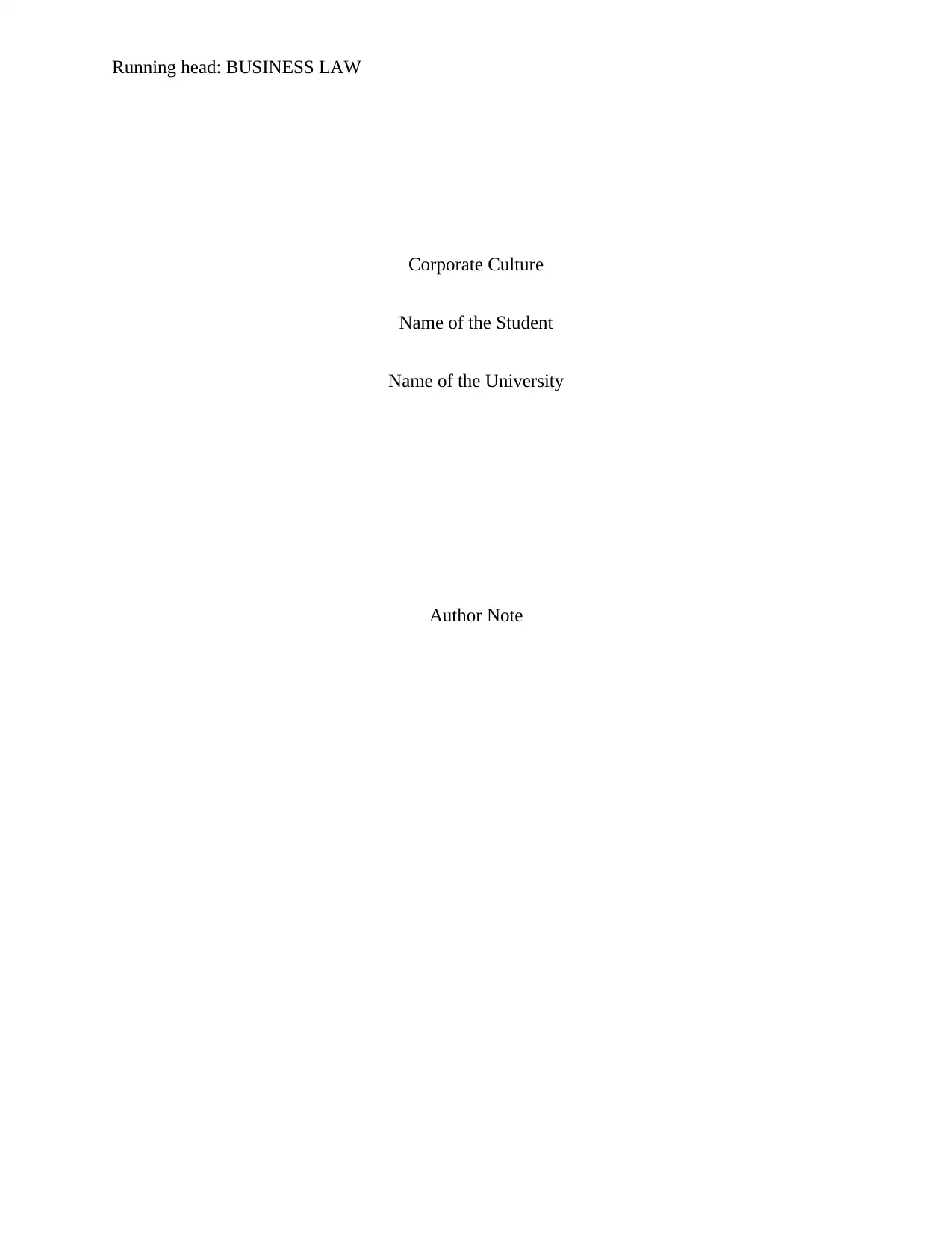
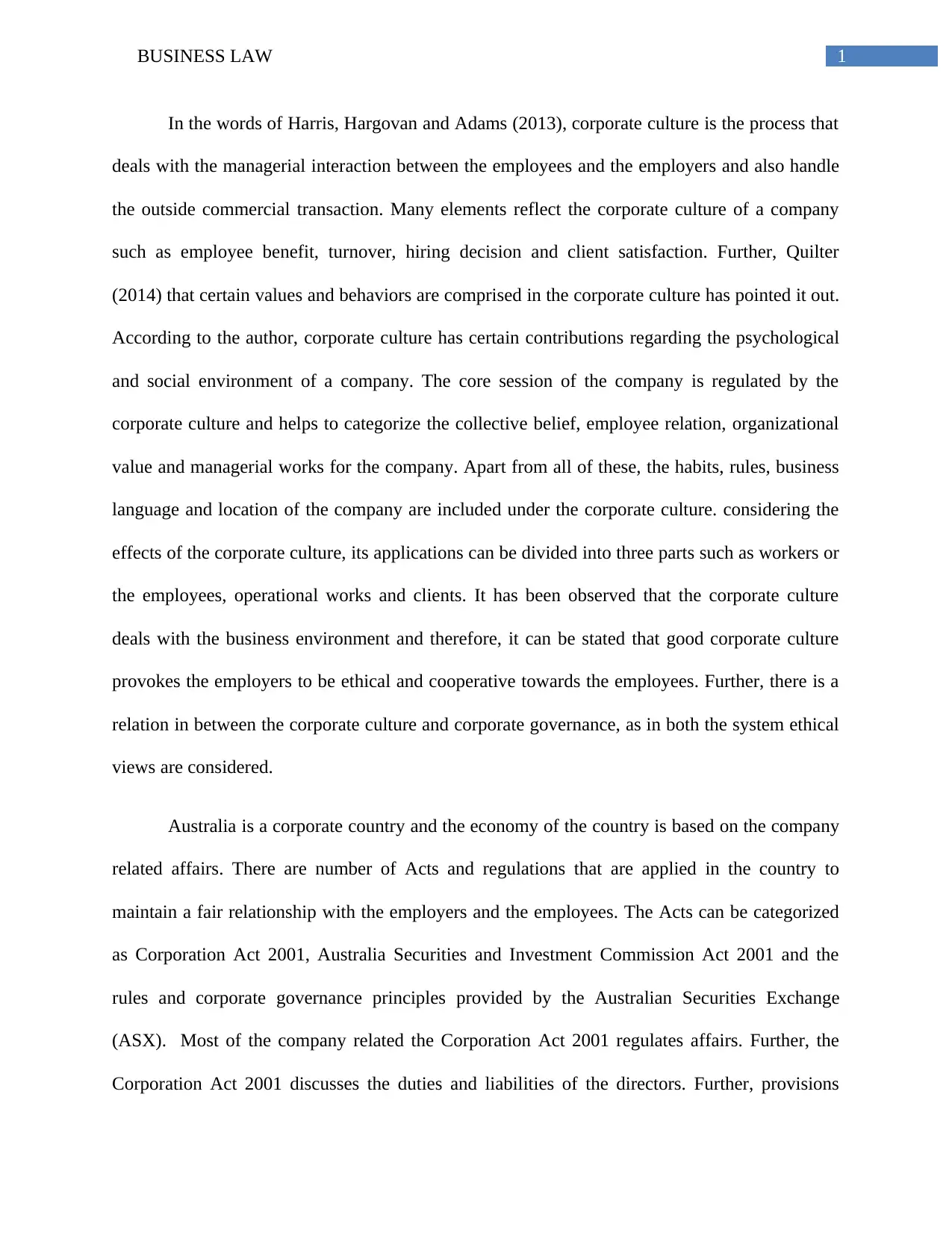
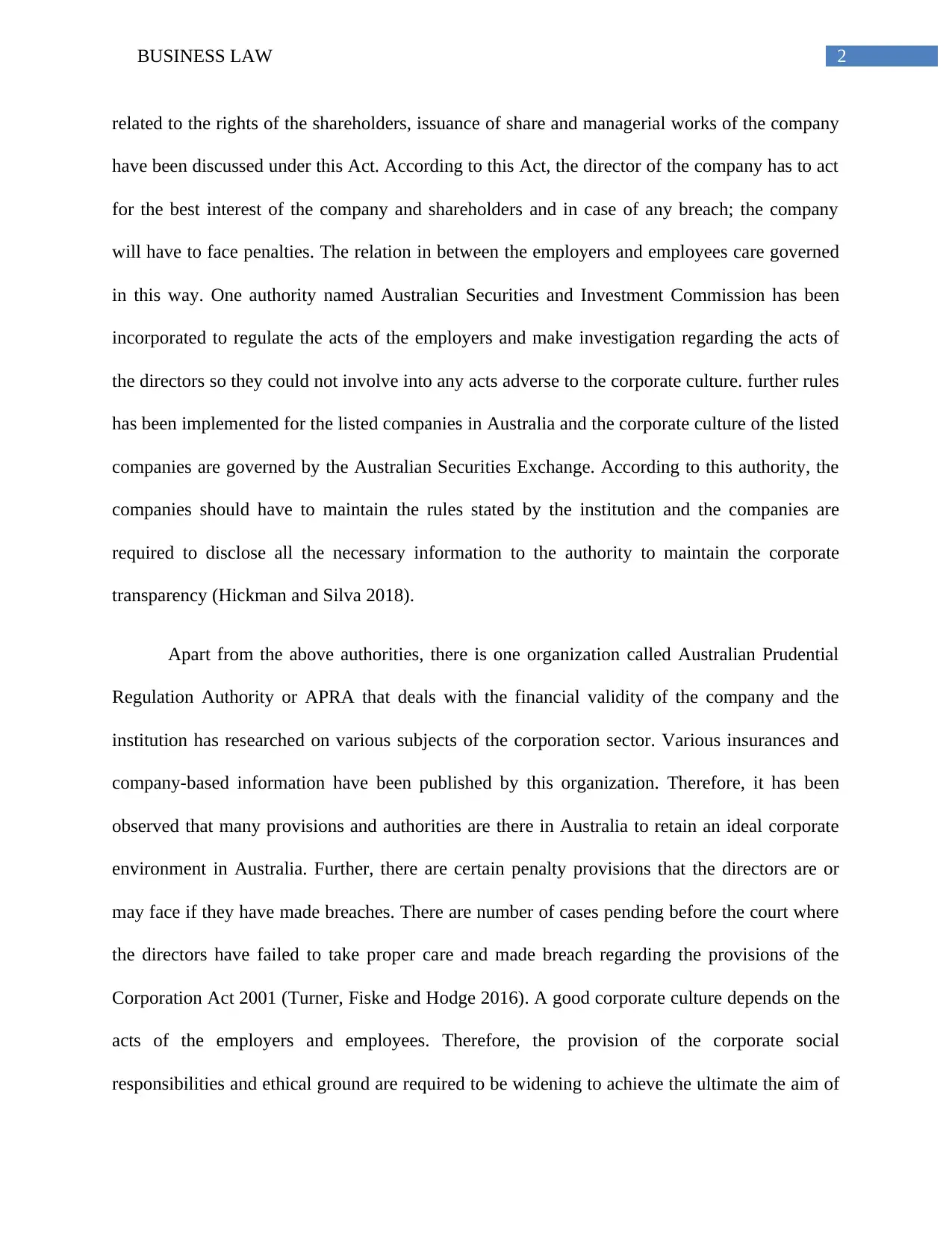

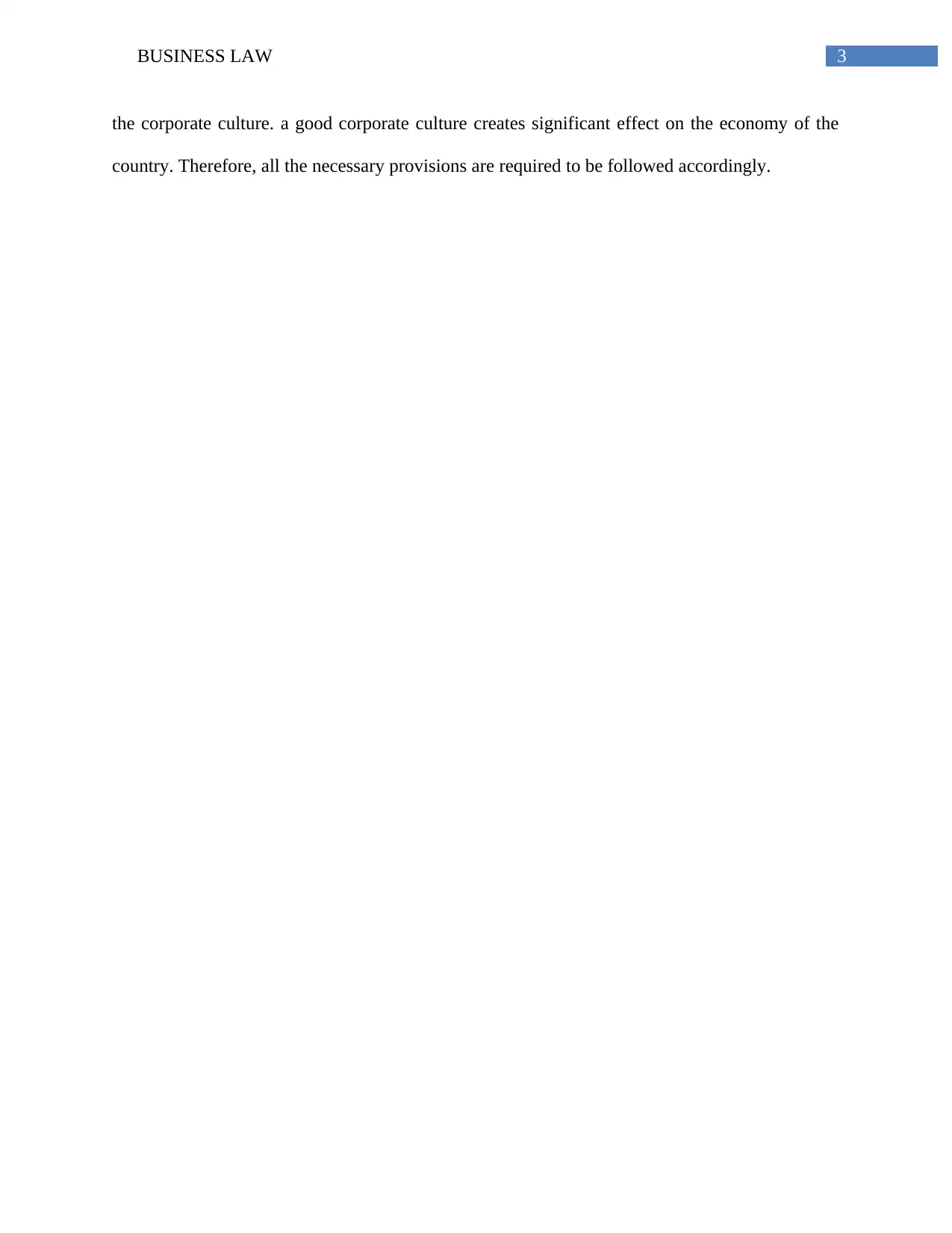
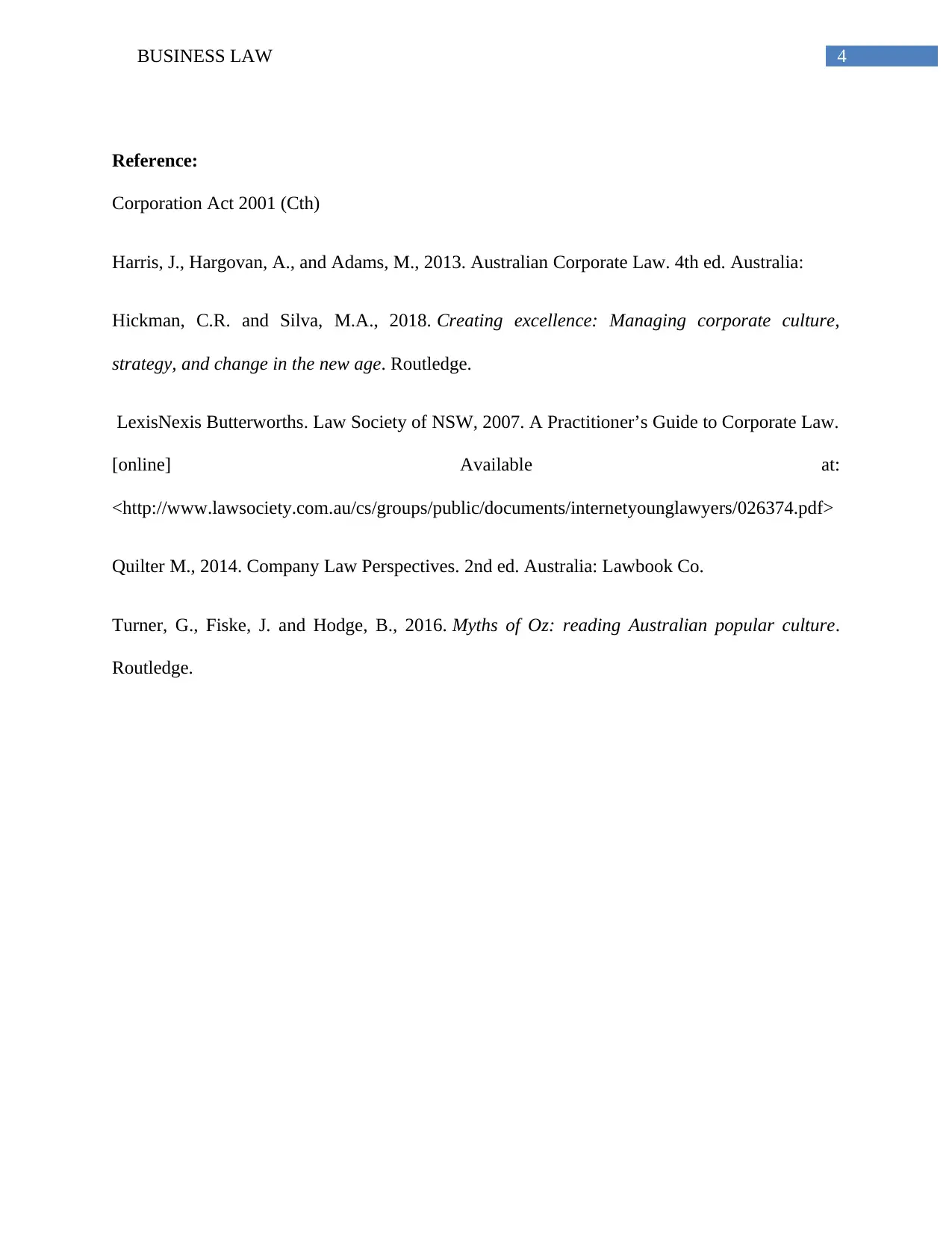


![Detailed Analysis of ASIC v Soust [2010] FCA 68 in Corporation Law](/_next/image/?url=https%3A%2F%2Fdesklib.com%2Fmedia%2Fimages%2Ffi%2F20324e68a4164452b6c90fd7e3ba829a.jpg&w=256&q=75)



![[object Object]](/_next/static/media/star-bottom.7253800d.svg)